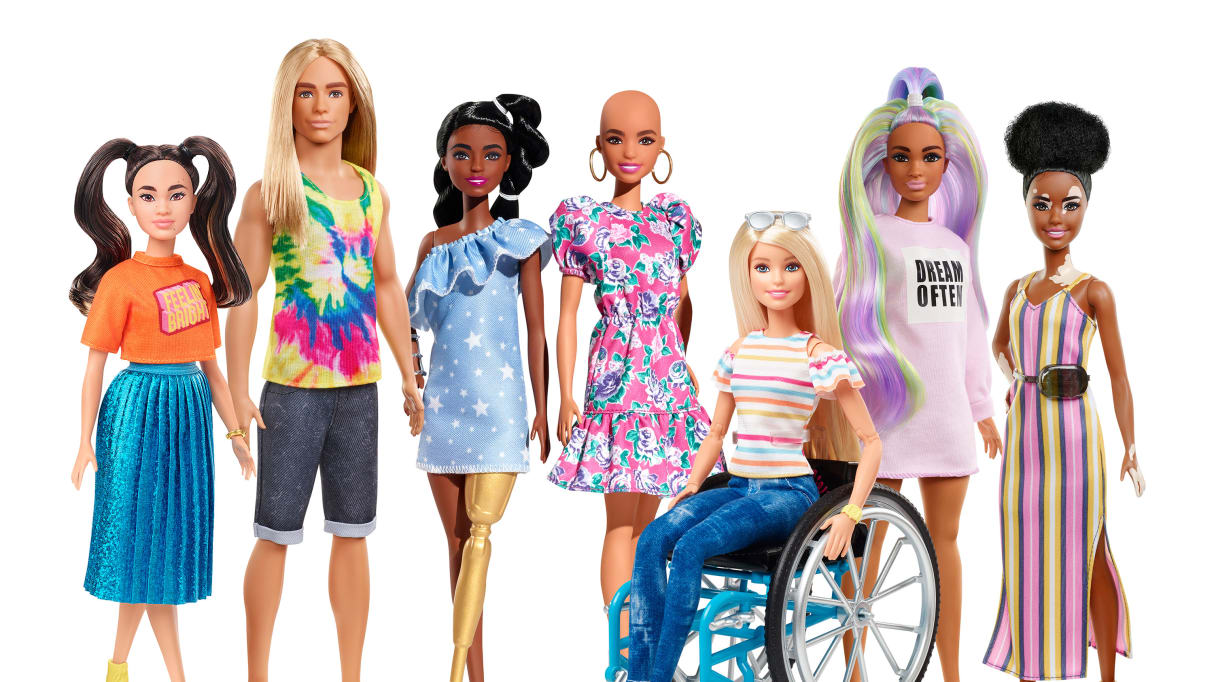
Mattel, the maker of Barbie dolls, has
released new designs to broaden the diversity of its range, including a doll
with no hair and one with the skin condition vitiligo – which causes patches of
skin to lose their pigment.
The company behind the popular toy wants to showcase
"a multi-dimensional view of beauty and fashion" through new
additions to its Barbie Fashionistas line.
Mattel said in a statement that a prototype of the
vitiligo toy, which debuted on the Barbie Instagram page last year, became its
most "liked" post ever.
Speaking of the Barbie with no hair, the company said:
"If a girl is experiencing hair loss for any reason, she can see herself
reflected in the line."
Last year, a doll with a prosthetic leg and another with
a wheelchair joined the Fashionistas range.
The company has expanded its range of dolls with
prosthetic limbs, adding another model this year to its collection.
Other dolls in the 2019 Fashionistas line offered a
variety of appearances, including braided hair texture and more realistic body
types (smaller bust, less defined waist and more defined arms).
Mattel worked with Jordan Reeves, a
13-year-old disability activist who was born without a left forearm, to create
the doll with the prosthetic limb, which can be removed for a "more
realistic" play experience.
The toymaker also worked with UCLA Mattel Children's Hospital and wheelchair experts to design a wheelchair, which the company said has been one of the most requested accessories from Barbie fans.
The toymaker also worked with UCLA Mattel Children's Hospital and wheelchair experts to design a wheelchair, which the company said has been one of the most requested accessories from Barbie fans.
It's symbolic that "a big icon of society like
Barbie now demonstrates or shows that there are different types of people who can be attractive and something kids want to play with," said Curt
Decker, executive director of the National Disability Rights Network.
Decker said he hopes the new dolls can remove stigmas
surrounding disabilities and show kids that there is "nothing wrong"
with people who have them.
More than 1 billion people in the world have a
disability, according to Jennifer Laszlo Mizrahi, president of RespectAbility,
an advocacy group for people with disabilities.
"We want to see ourselves reflected in the
culture, toys, products and everything around us," Mizrahi said.
"Barbie joins a number of powerful companies who also understand that
marketing, and including, people with disabilities is both the right thing to
do and the profitable thing to do."

From CNN (edited)